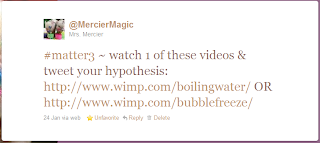Misconceiving Social Media
Social media is a powerful tool. It helps companies reach consumers and connects people in ways that are economically feasible. And so when I see infographics like these, I get excited. But then when I see commentary like the 'cautions' at the bottom of this infographic I get upset. Although these statements are thoughts, opinions, and feelings they are misconceptions stemming from unfamiliarity with social media.
Social media is damaging. I can see why it may be viewed as so, when colleges are disheartened by what they see applicants posting online about themselves. What colleges (adults) fail to remember is that what teens mostly post online is in the moment and/or reactionary. Developmentally, they are making decisions based on how they see themselves, others see them, and how they can help themselves fit in. They are not thinking long-term, considering college or future employment. They are thinking about their peers and that court of public opinion and this does not guarantee that wise decisions will be made online. They are marketing themselves to an intended peer group. Until we start teaching children, at all ages, how to use social media positively, we should wait on using it as a tool to assess their character because quite honestly, they are publicly trying on personalities.
Sure, social media can be a distraction. But let's talk about why kiddos are choosing to be on Facebook during class instead of participating. It has everything to do worth the class...it's not engaging the kiddos. If only one instructional practice (lecture) is being used kiddos will find a way to distract themselves. Facebook can be no different than when I used to write notes in class; the classes that bored me to death. so really, there are three options to solve this:
- Make class engaging
- Use social media to engage students
- Both
Sadly, unkind and cruel things can happen on social media. Developmentally teens and pre-teens are not (capable of or interested in) thinking long-term. they are thinking about their peers and their image. The real problem is not the social media though. Nope. It's how we teach and model for kiddos to treat each other. If we are trying our best to be kind to others and respectfully assertive, then our kiddos will see that is the proper thing to do. After all, they are constantly watching us to see how to behave, whats right and wrong. If all they see us do is be unkind then they will think thats the right thing to do. It's how we teach (or not) them how to use social media. If we want kiddos to be nice with their device, then we need to start showing them how and holding them to that expectation. Also, if we are using social media in class then it subtly changes their purpose for using it ...
There seems to be this idea that social media is un-monitor-able. Not so. Twitter allows you to create lists. Facebook allows you to create groups. YouTube allows you to set up email alerts. But then there are third party social network clients like HooteSuite and TweetDeck that allow you to set up notifications. You can be alerted when a participle list or #hashtag has been posted to. While it may be difficult for one teacher to monitor one hundred kiddos, their potential summative class list, but there are other options. Some schools have advisory systems and it would be easier for an advisor to monitor their advisees. Also, kiddos want to know they are doing the right thing; they want feedback from us. Adult attention is a huge motivator for (mis)behavior. If we are monitoring them, and they know it, they are more likely to engage in positive behavior. If they don't, we now have a teachable moment and alter their habits for a lifetime.
The bonus of social media and how we adults approach it with kiddos is that the more we see and reinforce the positive communications the more it will be employed. The more positive behavior kiddos engage in the more likely it will turn it into a life-long habit. Once this happens there will be a decrease of cyber cruelty and an increase of cyber positivity. Colleges and employers will see fewer posts about partying and nudity. The only way we are going to change what happens on social media is if we adults dive into it, understand it, and embrace it. Once we do that, we can change the platform as our kiddos know it.


Comments
Post a Comment